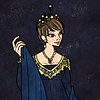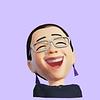Take a photo of a barcode or cover
I wonder what the rating here on Goodreads would be if people were not expecting a self-help book with that 'how to' title. Quite misleading (although a roaring marketing success, I must say). In any case, I'm happy I knew that I was in for something more substantial and thoughtful than yet another checklist of quick-fix to do's ensuring my future peace of mind.
It's an absorbing read that I am already looking forward to revisiting. The book discusses 'doing nothing', or, better said, giving intentional attention to your surroundings and immersing yourself in your locality in various ways. There's many a thought in the book that resonated with me on my current path as I navigate a period in my life with a lot of leisure time in a society that seems to worship the unrelenting busy doings of its members. Odell uses various writers, thinkers and plenty of creative artists to clarify and illustrate her thoughts in very insightful ways.
It's rather philosophical at times and can be quite highbrow with its vocabulary, a plus or not depending on your taste. I personally enjoyed being spoken to with some jargon in the mix, it's strangely satisfying to feel taken seriously as the reader of a mass marketed book.
But if you need confirmation that you should stop spending hours a day on FB, TikTok and other attention grabbing platforms, this is not the book for you. If you like, you may take my word for that though.
It's an absorbing read that I am already looking forward to revisiting. The book discusses 'doing nothing', or, better said, giving intentional attention to your surroundings and immersing yourself in your locality in various ways. There's many a thought in the book that resonated with me on my current path as I navigate a period in my life with a lot of leisure time in a society that seems to worship the unrelenting busy doings of its members. Odell uses various writers, thinkers and plenty of creative artists to clarify and illustrate her thoughts in very insightful ways.
It's rather philosophical at times and can be quite highbrow with its vocabulary, a plus or not depending on your taste. I personally enjoyed being spoken to with some jargon in the mix, it's strangely satisfying to feel taken seriously as the reader of a mass marketed book.
But if you need confirmation that you should stop spending hours a day on FB, TikTok and other attention grabbing platforms, this is not the book for you. If you like, you may take my word for that though.
hopeful
reflective
slow-paced
I just wasn't in the right mindset. Also, I prefer to read non fiction in print so I can take notes.
This reads a lot like a grad school thesis. It’s well-researched with diverse sources, but it felt too stiff for me to read word for word.
informative
reflective
slow-paced
challenging
informative
inspiring
reflective
slow-paced
Thought-provoking but boring
hopeful
informative
reflective
slow-paced
This was a fine book, but it’s one of those books with a short shelf life. Between the pandemic and the rapid expansion of AI, the world we live in in 2025 is so vastly different from the one we were living in when the author was working on this book over half a decade ago, many of the reflections have lost their power. However, the author discusses a few concepts and approaches that continue to hold potential, especially bioregionalism, the cultivation of a deeper connection with our local natural environment, and Manifest Dismantling, the process of gradually, dismantling specific destructive aspects of our current economic system and infrastructure. In addition to their continued relevance, what made the parts addressing these two concepts especially engaging was Odell’s balanced exploration of them. Large stretches of the book felt like the author was trying to do too much, bouncing back and forth between philosophical explorations, artistic practice (including her own), and a few brief mentions of more practical approaches to the issue of the attention economy. While these different perspectives felt relevant to the overall topic of the book (even though the philosophical aspects of the issues seem somewhat overexplored at this point), things still felt a bit disjointed. However, in her discussion of bioregionalism and Manifest Dismantling, the author really managed to strike a balance. Overall a worthwhile read but beyond the two concepts mentioned earlier not necessarily one of the books that will stick with me.
i rarely do not finish books and i was hoping this book will become something else, but it did not. it's just a book full of loosely related factoids, author's personal stories and birds. one review here summarised it perfectly: the author offers no ideas beyond being wealthy, working part-time, living in san francisco and having access to all kinds of art galleries and museums (and birdwatching).
I'm feeling a bit betrayed by this book. I went into it expecting a sort of self-help/sociology combo on how to resist the addictive pull of technology and, by extension, capitalism, and what I got was some abstract academic ramblings and random personal anecdotes about bird watching?? Odell has some good ideas and this book is clearly well-researched; however, the way it was written felt so meandering, hard to parse, and just incredibly BORING.
My main problem is that Odell doesn't seem to have any sort of clear argument. She presents a series of historical factoids and personal stories—some more interesting than others—to show how we might redirect and reclaim our attention away from our capitalist society, only to backtrack with a note about how not everyone can afford the cost of resistance. I understand that she's trying to show that this is a deeply nuanced subject and there is no one "right" answer, but I'm left wondering—what was the point of this book then?? It seems like only the highly privileged west coast elite can afford to live the kind of attention-resistant, part-time job lifestyle of long nature walks and secluded cabin trips that Odell is touting. It felt like the answer to resisting the attention economy is just "have money, leisure time, and live in an area with access to abundant art and nature." And if you don't like bird watching? Well, you're shit out of luck. Seriously, this book ended up being 25% about birds. Sorry, but I'M NOT INTERESTED IN SPENDING MY MEAGER FREE TIME BIRD WATCHING!!! I think bad marketing is to blame here for casting this book as something that it is clearly not: it's more of a personal manifesto on how SHE likes to redirect her attention, and it just did not resonate with me at all.
Perhaps I'm not ready to engage with resisting the attention economy in the way that Odell posits. While I agree with her that it's important to reevaluate what we consider "useful" in order to resist the pull of constant productivity, I still find myself in the "time well spent" category. Meaning, in the words of Bartleby the Scrivener, when it comes to staring at abstract art, bird watching, and other forms of "doing nothing" that Odell suggests—including reading this book—"I would prefer not to."
My main problem is that Odell doesn't seem to have any sort of clear argument. She presents a series of historical factoids and personal stories—some more interesting than others—to show how we might redirect and reclaim our attention away from our capitalist society, only to backtrack with a note about how not everyone can afford the cost of resistance. I understand that she's trying to show that this is a deeply nuanced subject and there is no one "right" answer, but I'm left wondering—what was the point of this book then?? It seems like only the highly privileged west coast elite can afford to live the kind of attention-resistant, part-time job lifestyle of long nature walks and secluded cabin trips that Odell is touting. It felt like the answer to resisting the attention economy is just "have money, leisure time, and live in an area with access to abundant art and nature." And if you don't like bird watching? Well, you're shit out of luck. Seriously, this book ended up being 25% about birds. Sorry, but I'M NOT INTERESTED IN SPENDING MY MEAGER FREE TIME BIRD WATCHING!!! I think bad marketing is to blame here for casting this book as something that it is clearly not: it's more of a personal manifesto on how SHE likes to redirect her attention, and it just did not resonate with me at all.
Perhaps I'm not ready to engage with resisting the attention economy in the way that Odell posits. While I agree with her that it's important to reevaluate what we consider "useful" in order to resist the pull of constant productivity, I still find myself in the "time well spent" category. Meaning, in the words of Bartleby the Scrivener, when it comes to staring at abstract art, bird watching, and other forms of "doing nothing" that Odell suggests—including reading this book—"I would prefer not to."
inspiring
reflective
slow-paced
“To do nothing is to hold yourself still so that you can perceive what is actually there.”
This book had so many interesting arguments and made me think and make connections. However, it was also discombobulated and jumbled, it felt hard to keep track of.
It felt like your well-researched friend mixed with a random hippie you met at the farmers market. I loved many parts, and also felt like I couldn’t understand what point was being argued.
In a way, this book didn’t meet my expectations for learning how to stop needing productivity 24/7. I was hoping for advice on changing my perspective and growing in being home, still, and calm. In other ways, that’s exactly what this book taught me.
After reading this book, I hope I am better prepared to experience life. I don’t know that I am, but I’ll go forward with faith in things working out the way they’re supposed to.
This book had so many interesting arguments and made me think and make connections. However, it was also discombobulated and jumbled, it felt hard to keep track of.
It felt like your well-researched friend mixed with a random hippie you met at the farmers market. I loved many parts, and also felt like I couldn’t understand what point was being argued.
In a way, this book didn’t meet my expectations for learning how to stop needing productivity 24/7. I was hoping for advice on changing my perspective and growing in being home, still, and calm. In other ways, that’s exactly what this book taught me.
After reading this book, I hope I am better prepared to experience life. I don’t know that I am, but I’ll go forward with faith in things working out the way they’re supposed to.





